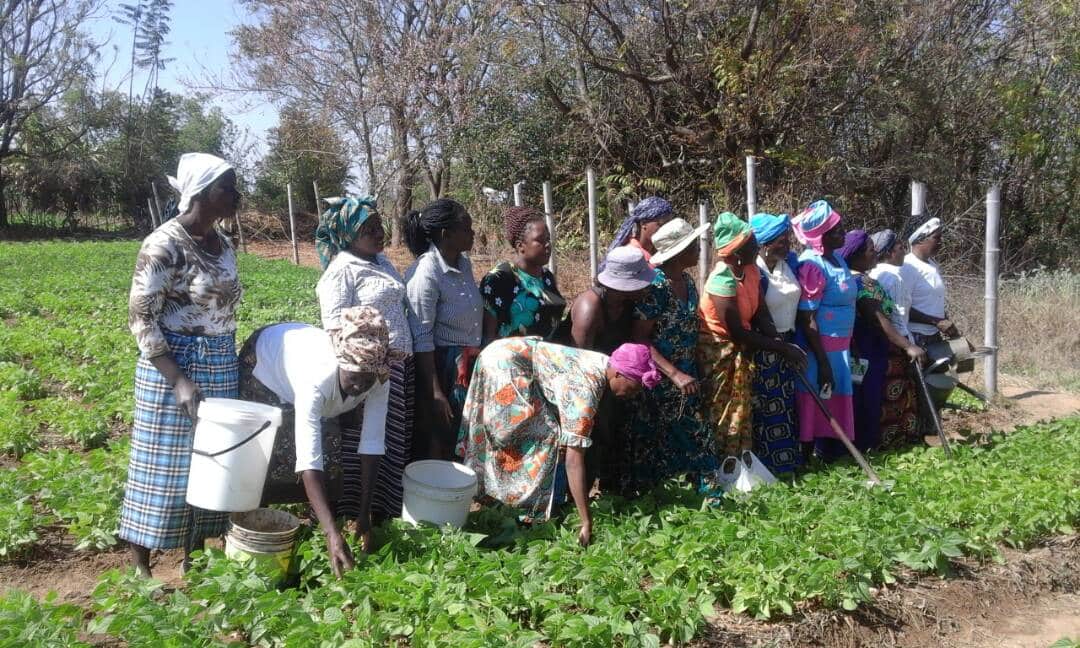By Byron Mutingwende
The Global Community is living no stone unturned in their endeavour to develop sustainable community responsive strategies to ensure adaptability and resilience in the wake of extreme hunger and severe poverty. Zimbabwe Parents of the Handicapped Children joined the Global Community in making frantic efforts to ensure grassroots women particularly mothers of children living with disabilities address impacts of climate change-induced food insecurity in the Greater Harare Province of Zimbabwe.
Climate Change is the current global leading challenge outside poverty with scholars, developmental agencies, civil societies, national governments and research Institutions being preoccupied in making efforts to find the lasting sustainable solution to the phenomenon.
Speaking to Spiked Online Media during a site visit to one of the site projects in Domboshava, Theresa Makwara, the Coordinator of the Zimbabwe Parents of the Handicapped Children Association said with financial support from Huairou Commission her organisation identified 200 grassroots women affected by climate change in the Greater Harare Province of Zimbabwe for the Resilience Building Project Implementation.
“The Project was implemented in line with the ZPHCA Resilience Building Model, which is an amalgamation of tried and tested grassroots women climate change resilience building practical solutions. The 200 grassroots women were involved in the Resilience Building Projects and great results are emerging from the field of implementation,” Makwara said.
A number of achievements were reported and noted. At the moment, 100 grassroots women benefited from the Gardening Input Support Programme. Under this program, grassroots women were given various vegetable seeds, fertilisers, water pumps, spraying chemicals and other gardening tools amongst others.
On the other hand, 10 Grassroots Women Internal Savings and Credit Scheme/Revolving Fund Groups were established and supported with an initial capital of $300 per group while 66 Grassroots women Leaders from Harare, Chitungwiza, Epworth and Domboshawa were trained and graduated as Resilience Building Peer Educators. Women are also engaging in value-addition projects like food processing.
Several Resilience Building Awareness and Advocacy Campaigns were held in Chitungwiza, Harare, Domboshawa, Epworth, Caledonia and Dema amongst other strategic Areas. In addition, 44 Grassroots women leaders were trained and mentored to become Disaster Risk Reduction Community Peer Educators; 200 Grassroots women formerly joined the ZPHCA Resilience Movement which was officially launched in Harare at Rokpa Centre; and more than 60 Grassroots women leaders from Harare, Chitungwiza, Epworth and Domboshawa were trained in monitoring Good Governance practices by the respective Local Authorities.
ZPHCA in partnership with other Huairou Commission Networking Partners in Zimbabwe managed to Organise 1 National Exchange Visit for members participating in implementing Resilience Building Projects. 3 Further internal Peer Exchange Visits were done for 10 ZPHCA Groups were done in Dema, Domboshawa and Epworth. This is a community-initiated project that will also help other vulnerable women and children with disabilities.
Commenting on the achievements, Elizabeth Chidi, the ZPHCA Grassroots womrn leader who is also a mother of a child with disability said the programme educated her and other women to grow drought-resistant crops like rapoko, millet, cassava, groundnuts, sweet potatoes and sorghum.

“At my small piece of land in the Retreat area in Harare, I grew cassava, sweet potatoes, onions, Covo, spinach, beetroot and carrots. I have sold these vegetables over the last two seasons. I estimate that I made a profit of about $65 and helped pay my child’s school fees. Through the programme, I visited other grassroot women partners in Domboshava for experience sharing and learning of best practice. I learnt that mulching saves water and adds organic manure. I am also imparting the knowledge to other grassroot women,” Chidi said.
Another beneficiary, Anne Mangadzi who lives in St. Mary’s Chitungwiza was ecstatic about the benefits of the programme.
“I have managed to grow some spinach in my garden after I met Elizabeth Chidi who taught me how to grow it productively. I have best spinach in the area. The community of St. Mary’s is coming to learn conservation agriculture techniques from me. They are also buying my spinach like hot cakes from me,” Mangadzi said.
The programme also taught grassroot women about fisheries whereby they are keeping fish on a small scale. The climate change adaptation programmes have also ensured food and nutrition security among the women. They have are also producing a 4-star diet from the projects. These include animals and crops rich in carbohydrates, proteins, minerals and vitamins. Makwara said in addition to the resilience work among the ZPHCA members, women were also running fisheries through the opportunity offered by Huirou Commission.
The programme has proved to be a huge success and the women have appealed for more support from the government, donors and development partners for more land for projects and working capital in order to build resilience to climate change.
